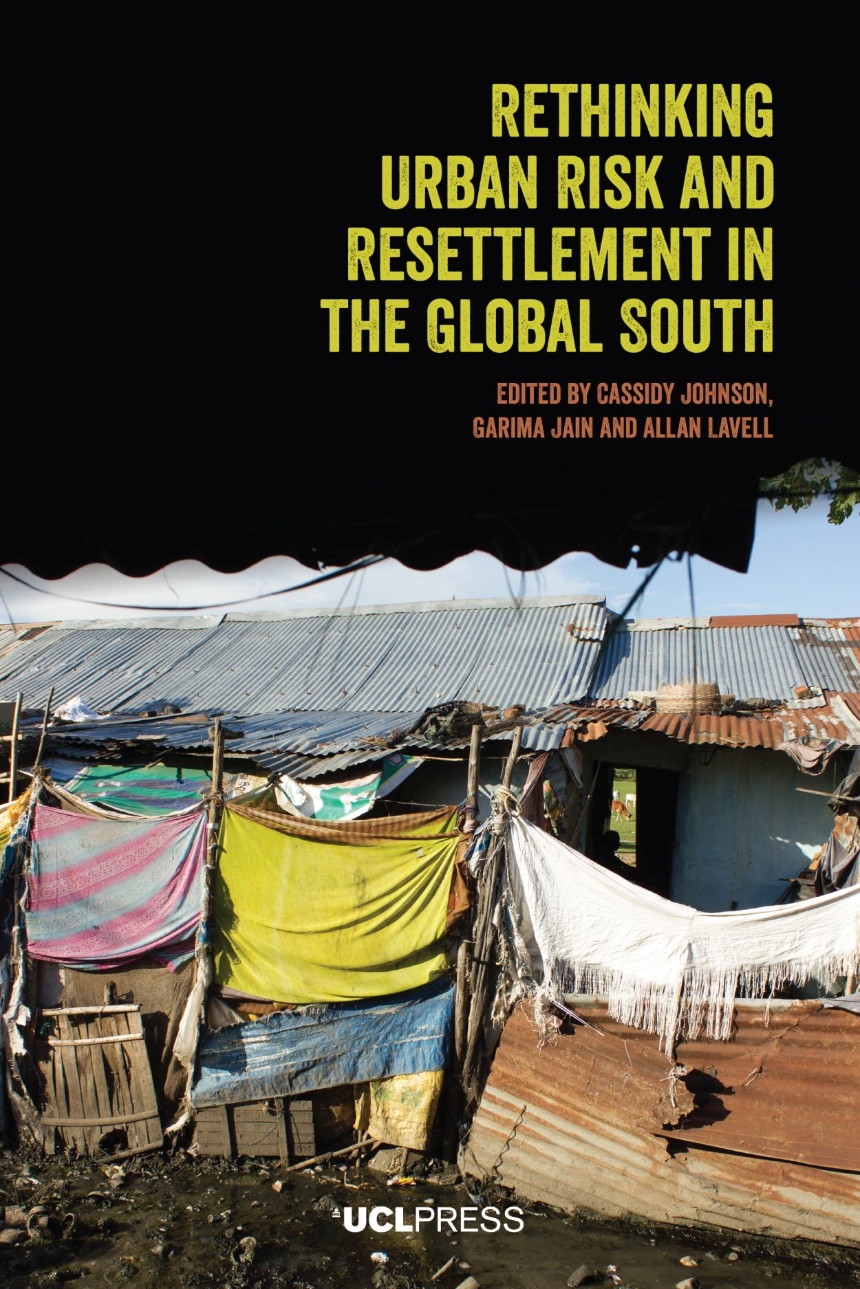Distributed for UCL Press
Rethinking Urban Risk and Resettlement in the Global South
Environmental changes impact everyone, but the burden is especially heavy upon the lives and livelihoods of the urban poor and those living in informal settlements. In an effort to reduce urban residents’ exposure to climate change and natural disasters, resettlement programs are becoming widespread across the Global South. Yet, while resettlement may reduce a region’s future climate-related disaster risk, it can also often increase poverty and vulnerability. This volume collates the findings from a research project that examined urban areas across the globe, including case studies from India, Uganda, Peru, Colombia, Mexico, Cambodia, and the Philippines. The book offers a unique approach to resettlement, providing an opportunity for urban planners to re-think how disaster risk management can better address the accumulation of urban risks in the era of climate change.
Table of Contents
List of figures and tables
List of contributors
Introduction Cassidy Johnson, Allan Lavell and Garima Jain
Part I: Framing the issues
1. Resettlement and relocation: an approach to understanding failure and guiding success Allan Lavell
2. Re-settling, re-enabling, the challenge of reconstructing a human habitat Anne-Catherine Chardon
3. How do relocation decisions and implementation impact risk outcomes? Raising questions after learning from India Garima Jain
Part II: Understanding and interpreting risk
4. Risk as a subjective concept and its influence on decision-making Cassidy Johnson, Garima Jain, Vineetha Nalla and José Delfin Cáceres-Martínez
5. A risk assessment framework for decision making that transcends economic valuation: understanding why people choose to stay in disaster-risk prone areas Shuaib Lwasa, Amir Bazaz and Garima Jain
6. Resettlement in Montserrat after the volcanic crisis: A consensus on tolerable levels of risk? Emily Wilkinson
Part III: Protest and power: resistance to resettlement
7. The choice of perils: understanding resistance to resettlement for urban Disaster Risk Reduction (DRR)/Climate Change Adaptation (CCA) Anthony Oliver-Smith
8. Resistance and resilience of the community of Belen, Iquitos, Peru, to resettlement Angel Wilson Chávez-Eslava
Part IV: Land issues in resettlement
9. Land, property rights and risk Colin Marx
10. Climate change, land and housing induced evictions. Another round of accumulation through dispossession? Yves Cabannes
11. Relocation, expulsion and risk in Phnom Penh, Cambodia Giovanna Astolfo
12. Stay or leave? How recognising self-recovery can support the agency and choice of typhoon survivors in urban Tacloban, Philippines Bill Flinn and Holly Schofield
Part V: Natural resource and human occupation issues
13. Population resettlement in the Celestun River Biosphere Reserve: an opportunity for development? Elizabeth Mansilla
14. (Re)creating disasters – A case of post-disaster resettlements in Chennai Garima Jain, Chandni Singh and Teja Malladi
15. Flood risk induced relocation in urban areas: case studies of Bwaise and Natete, Kampala Teddy Kisembo
Conclusion Allan Lavell, Garima Jain and Cassidy Johnson
Appendix A Typology of resettlement and relocation interventions
Appendix B Risk-related resettlement and relocation in urban areas
Appendix C Disaster and hazard-induced urban resettlement in Latin America
Appendix D Re-imagining resettlement for risk reduction in urban India
Appendix E Building better to build back better: understanding value, cost, and risk in Kampala, Uganda
Index

